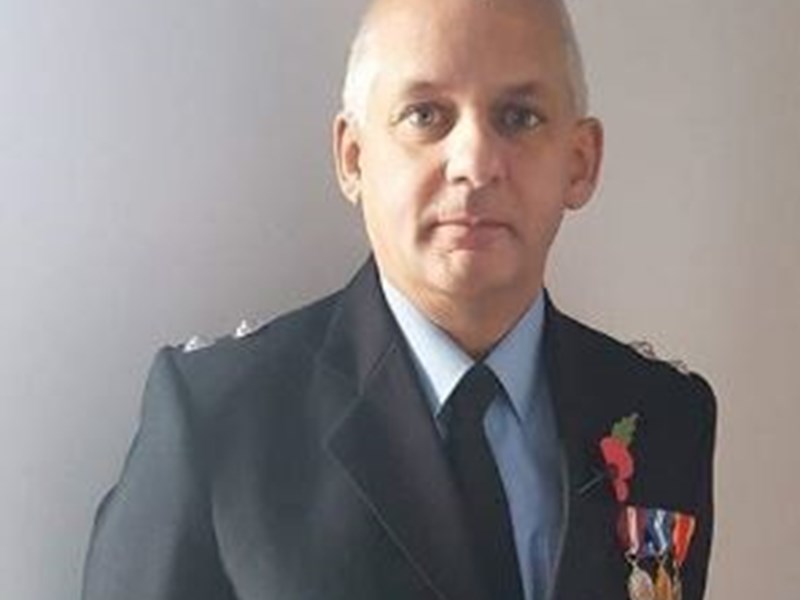'I've loved it and I'm sorry to go' - Darren calls time on three decades of service having followed father's footsteps

Firefighting and serving the community is in Darren Smith’s blood, so he’s sad he’s having to call time on a career spanning more than three decades.
Darren was perhaps destined to become a firefighter as he followed in his Dad, Alf’s, footsteps.
Alf was a firefighter at Wombourne until his retirement in March 1982 and growing up in a household where the call to attend a fire or road accident could come at any moment was perfectly normal for Darren.
Once a sheep had got up a sewerage pipe and was trapped. I was youngest and thinnest, so I got sent in. I had to crawl up there and it wasn’t nice but I got him out.
And Darren certainly believes in keeping it in the family - he’s married to a firefighter from West Midlands Fire Service.
On-call firefighters must live close to work to respond quickly when their ‘alerter’ goes off but few can live as close as Darren who counts his commute in metres rather than minutes.
He signed up as soon as he was 18 in 1984. It all seems a long time ago now. Duran Duran, Wham and Frankie Goes To Hollywood were riding high in the charts when Darren joined.
He will have served 36 years 4 months when he retires today (2 April), mainly as on on-call firefighter, but with spells working in full-time roles at Burton and Cannock.
“I’ve loved it and I’m sorry to go. I’d really do it all again. And to anyone thinking about firefighting as a career I’d say go for it.”
Darren, who is 55 in April, and has worked in various factories, is retiring after some recent ill health.
“I’m looking forward to free time but it’s going to be such a change and I know I’m going to miss it.”
He recalls a very different fire service.
“At training school there was so much discipline. Boots had to be gleaming as our instructors were ex-Forces and we wore blazers and marched in step to lunch.”
“Culturally it was so different. I’ve seen a lot of change, such as the role of the service going from almost purely response-based to prevention. This has been a really important step.”
He recalls busy periods, particularly the long, hot summers such as 1995 where he helped tackle heathland blazes. He’s dealt with fire deaths, forest fires, road traffic collisions, and rescued dozens of trapped horses, cats, birds, pigs and dogs.
“Once a sheep had got up a sewerage pipe and was trapped. I was youngest and thinnest, so I got sent in. I had to crawl up there and it wasn’t nice but I got him out."
Darren says he has regularly done 100-120 hours on-call a week so it’ll be unusual stopping.
“You don’t know what’s coming when you get that call. But over and above everything else I’ve loved serving my community. It’s such a good feeling.”
He’s had to deal with some difficult, distressing incidents – such as the first fire death he attended in 1986 - and says talking it through with family and colleagues helps a great deal.
“The job helps people develop in so many ways,” he says. “It’s great for confidence and challenging yourself and that feeling of helping people when they really need you. My advice (when things return to some normality) is come down for a cup of tea and meet the firefighters and chat to them and see what they do."
Darren adds finally: “Go for it. It could be the best move you ever make. It was for me."
On-call firefighters are needed at locations across the county by Staffordshire Fire and Rescue Service.
The role has the same prevention, protection and response responsibilities of a whole-time firefighter and can be physically rigorous and require mental resilience.
It is a rigorous selection process with an online application, interview and further tests, as well as medical and physical checks, before training begins.
Published:
